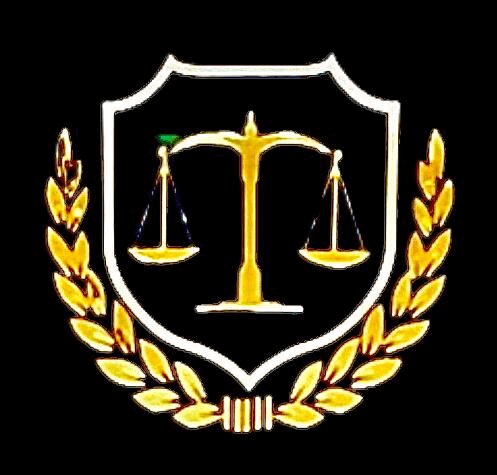Best Faith-Based Law Lawyers in Riyadh
Share your needs with us, get contacted by law firms.
Free. Takes 2 min.
List of the best lawyers in Riyadh, Saudi Arabia
About Faith-Based Law in Riyadh, Saudi Arabia
Faith-Based Law in Riyadh, Saudi Arabia, primarily centers around Islamic or Sharia law, which forms the foundation of the country's legal system. This legal framework is deeply rooted in Islamic teachings and principles derived from the Quran, Hadith, and centuries of Islamic jurisprudence. Faith-Based Law governs various aspects of personal, family, and financial matters, and is implemented alongside statutory laws enacted by the government. Understanding this dual structure is crucial for anyone seeking legal guidance or addressing legal issues in Riyadh, as it influences both civil and criminal law processes.
Why You May Need a Lawyer
The need for legal assistance in Faith-Based Law can arise in numerous situations. Common scenarios include family disputes involving divorce, child custody, or inheritance, where Sharia law plays a pivotal role. Business owners and expatriates may require legal advice to navigate contracts and commercial activities in compliance with Islamic principles. Additionally, lawyers can help with matters relating to religious discrimination, compliance with religious obligations, and understanding how secular and religious laws intersect. Professionals can also aid in interpreting how Faith-Based Law affects criminal accusations and defense, ensuring fair representation and adherence to legal rights.
Local Laws Overview
Key aspects of local laws relevant to Faith-Based Law in Riyadh include:
- Family Law: This covers marriage, divorce, child custody, and inheritance. Sharia principles heavily influence these legal areas, emphasizing reconciliation and family unity.
- Commercial Law: Business dealings must adhere to Islamic principles like the prohibition of usury (riba) and ensuring halal transactions.
- Criminal Law: Includes laws on theft, intoxication, and other offenses, with punishments often specified in religious texts.
- Public Behavior: Laws regulate dress codes, public conduct, and religious observances, reflecting the society's commitment to Islamic values.
- Judicial System: The system comprises Sharia courts and Boards of Grievances addressing various disputes under Islamic law.
Frequently Asked Questions
What is the role of Sharia law in Riyadh's legal system?
Sharia law forms the cornerstone of the Saudi legal system, influencing a wide range of legal areas from personal matters to criminal justice, consistently aligning laws with Islamic principles.
Do I need a lawyer for a family dispute?
Yes, consulting a lawyer is advisable for family disputes such as divorce, custody, or inheritance matters due to the complex interplay of Sharia and civil laws.
How do commercial laws intersect with Sharia principles?
Commercial laws are guided by Sharia principles, requiring compliance with Islamic ethical standards, such as avoiding interest-based transactions and ensuring lawful business practices.
What penalties exist under Sharia law?
Penalties can vary from fines and imprisonment to corporal punishments, depending on the severity of the offense and its specified punishment in Islamic jurisprudence.
Can expatriates seek legal recourse under Faith-Based Law?
Expatriates are subject to the same legal framework as Saudi citizens and can seek legal recourse when required, though they must adhere to local regulations and respect Islamic customs.
Are there special courts for Sharia law cases?
Yes, Riyadh has Sharia courts dedicated to handling matters directly aligned with Islamic laws, alongside general courts for a broader array of legal issues.
What is the process for a criminal defense under Sharia law?
The accused has the right to legal representation, and the defense process involves presenting evidence and arguments aligned with both legal standards and Islamic ethical considerations.
What resources are available for understanding my legal rights under Sharia law?
Consultation with a qualified legal professional specializing in Faith-Based Law is vital for comprehending your rights and responsibilities within the Islamic legal framework.
How are personal status laws governed?
Personal status laws concerning marriage, divorce, and inheritance fall under the jurisdiction of Sharia courts, applying Islamic judicial principles to resolve issues consistently with religious doctrines.
Is mediation possible in family disputes?
Mediation is encouraged in family disputes to seek amicable resolutions, reflecting the emphasis on harmony and reconciliation in Islamic teachings.
Additional Resources
Several resources and organizations can be beneficial for individuals seeking legal advice in Faith-Based Law. These include:
- The Council of Senior Scholars: Provides religious and legal opinions on various matters.
- The Ministry of Justice: Offers information on court procedures and legal services available in Riyadh.
- Local Bar Associations: Can connect individuals with qualified lawyers specializing in Islamic law.
- Islamic Cultural Centers: Provide educational materials and workshops on understanding Sharia law.
Next Steps
If you require legal assistance in Faith-Based Law, it is crucial to identify your specific needs and seek professional counsel. Begin by consulting a lawyer with expertise in Sharia and Saudi law to understand your legal options and rights better. Prepare all necessary documentation, create a detailed account of your situation, and prioritize finding a legal representative who can guide you through the legal processes in Riyadh effectively. By taking these steps, you'll be well-prepared to address your legal matters within the framework of Faith-Based Law in Riyadh, Saudi Arabia.
Lawzana helps you find the best lawyers and law firms in Riyadh through a curated and pre-screened list of qualified legal professionals. Our platform offers rankings and detailed profiles of attorneys and law firms, allowing you to compare based on practice areas, including Faith-Based Law, experience, and client feedback.
Each profile includes a description of the firm's areas of practice, client reviews, team members and partners, year of establishment, spoken languages, office locations, contact information, social media presence, and any published articles or resources. Most firms on our platform speak English and are experienced in both local and international legal matters.
Get a quote from top-rated law firms in Riyadh, Saudi Arabia — quickly, securely, and without unnecessary hassle.
Disclaimer:
The information provided on this page is for general informational purposes only and does not constitute legal advice. While we strive to ensure the accuracy and relevance of the content, legal information may change over time, and interpretations of the law can vary. You should always consult with a qualified legal professional for advice specific to your situation.
We disclaim all liability for actions taken or not taken based on the content of this page. If you believe any information is incorrect or outdated, please contact us, and we will review and update it where appropriate.











